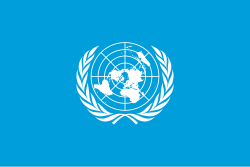East Timor | |||||||||
|---|---|---|---|---|---|---|---|---|---|
| 1999–2002 | |||||||||
 Location of East Timor at the end of the Indonesian archipelago. | |||||||||
| Status | United Nations administered territory | ||||||||
| Capital | Dili | ||||||||
| Common languages | Tetum Portuguese Indonesian English | ||||||||
| Transitional Administrator | |||||||||
• 1999 | Ian Martin | ||||||||
• 1999–2002 | Sérgio Vieira de Mello | ||||||||
| Chief Minister | |||||||||
• 2001–2002 | Mari Alkatiri | ||||||||
| Legislature | National Council | ||||||||
| History | |||||||||
| 25 October 1999 | |||||||||
| 20 May 2002 | |||||||||
| Area | |||||||||
• Total | 15,007 km2 (5,794 sq mi) | ||||||||
| Population | |||||||||
• | 947,000 | ||||||||
| Currency | United States dollar | ||||||||
| ISO 3166 code | TL | ||||||||
| |||||||||
United Nations Administered East Timor refers to the period when between 25 October 1999 and 20 May 2002, Timor-Leste was governed by the United Nations Transitional Administration in East Timor as a United Nations administered territory.
Contents
- Background
- Administrative history
- Initial administrative arrangements
- First transitional administration
- Second transitional administration
- Office holders
- Elections
- Local government
- Security and law enforcement
- International relations
- Travel documents
- Liaison Offices
- Sport
- Media and communications
- UNTAET public information
- Postal services
- Telecommunications
- See also
- References
- External links









